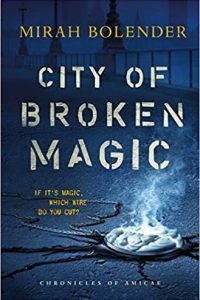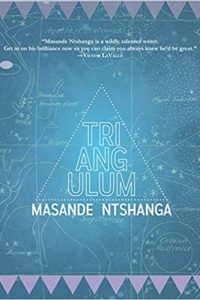Karen Burnham Reviews Short Fiction: Beneath Ceaseless Skies, Tor.com, and Clarkesworld
 Beneath Ceaseless Skies 9/26/19, 10/10/19
Beneath Ceaseless Skies 9/26/19, 10/10/19
Tor.com 9/25/19, 10/23/19
Clarkesworld 10/19
Beneath Ceaseless Skies reached its 11th anniversary with issue #287, which editor Scott Andrews released as a double-length special. The lead story is “Portrait of the Artist” by K.J. Parker, an amazing story of a woman who has learned to paint well enough and precisely enough to capture some people’s souls for resale. She is incredibly smart in how she handles all aspects of the situation, from the research to commissions and sales. The story takes all the time it needs to establish her character, backstory, and motivations before an investigator shows up to possibly upend everything. Next are two stories both drawing from Indian mythology. “Sankalpa” by Marie Brennan features a woman single-mindedly fixated on revenge through multiple reincarnations, all set in a mythic time when gods, demigods, and near-immortals walked the world. The body count piles up to appropriately epic levels by the conclusion of her story. In contrast, “One Found in a World of the Lost” by Shweta Adhyam features the impact of a single death. Pavitra and Gayatri are dear friends and primary providers for their “pack” in a time of very scarce resources. Gayatri is by far the better hunter, while Pavitra is good with a bow and arrow and prefers the storytelling and songs the pack sings at rest times. Pavitra is shattered when Gayatri is killed in a hunting accident and her spirit is unrestful, following a yakshini into a potential trap. The resolution of the story was not at what I expected, and I found it nicely empowering. Finally, Aaron Perry gives us an interesting philosophical dramatization in “The Witch of the Will“. The titular witch seizes the free will of the king, determining his every action in advance, and when he dies she’s able to prove that he completely lacked any will power. That would have been interesting enough, but the core of the story comes when an abused young man asks her to remove his free will. She reluctantly does so, thinking he would change his mind after shaking free of his tormentors. When he refuses to take it back, she goes on a multi-decade journey to convince him to accept the return. This thoughtfully explores some of the issues with free will, what it is, and how we perceive and value it.
Issue #288 returns to the dual story format, leading with “The Edges of the World” by Grace Seybold. Nalatachet has lived in political exile for decades and has long since come to terms with the constant surveillance of his life. We learn about his present life and his study of the nature around him as we read his last letter to his friend Bexeletl. Nalatachet has decided to transition to a much different life, leaving his exile behind him. A quiet story that has a nice twist at the end. The main character in Grace Young‘s story “Under Their Wings, These Starving Ghosts” is struggling with a much different transition. The young man is a ghost in a town where ghosts can only manifest when the sky is covered by migrating starlings. On his rare appearances, he gradually befriends a witch of sorts, and she is eventually able and willing to reconnect him with the identity of himself that he had lost.
Tor.com finished off September with a new Greg Egan story, “Zeitgeber“, which fits neatly in his near-future domestic mode of storytelling. The title is a real word, defined as “any external or environmental cue that entrains or synchronizes an organism’s biological rhythms to the Earth’s 24-hour light/dark cycle and 12-month cycle.” In this story, the narrator’s daughter becomes out of phase with the standard time clock; her internal clock tells her very clearly that it’s about 10 hours later than it is. Her body naturally wants to sleep during the day and be awake at night, and this condition quickly spreads around the world. Her father is a school teacher who pushes to start night classes for those who can’t handle school during the daytime – he also gets a chance to explain the cryptography techniques that authenticate the claims of the biohackers who apparently started this phenomenon and are holding the cure ransom. The story avoids a tidy ending, instead adding a layer of complication that touches on the theme of asking individuals to accommodate themselves to the world or vice versa. Let me note how much I appreciate Egan in this domestic mode, where his characters have jobs and kids and have to deal with the circumstances life throws at them. It’s still oddly unusual to have speculative fiction characters who live more-or-less “normal” lives.
Towards the end of October we get “As the Last I May Know” by S.L. Huang, a harrowing dramatization of a phenomenon that has long been postulated: when you have an ultimate weapon like an atomic arsenal (here represented by the SFnal substitute “seres”) we should consider implanting the launch codes in a living, breathing human. It’s too easy to order the deaths of millions of “enemy” citizens and execute the command by a push of a button. The person giving the order should be willing to personally kill one human being with their own hands in order to get the codes to launch the attack. In this future, that person is a child, and in this story during wartime, that child is Nyma, a budding poet. As the war progresses she is assigned to the President, who claims that he’s willing to make that sacrifice if it’s necessary. What will he do when the time comes? What are the consequences of both action and inaction in this case? Even her closest teacher falls into doubt, and the story itself neatly avoids any easy moralizing answers.
Clarkesworld is all-science-fiction, all-the-time in its October issue. “The Scrapyard” by Tomas Furby is an interesting scenario with aging veterans sent to a home to live out their days now that the war is over and their integrated battle armor is more of a risk than an asset. Those who are reading for plot may be frustrated, as the story ends just as things might be heating up, but the heart of this story is definitely the character portrait. “An Arc of Lightning Across the Eye of God” by PH Lee gives us a story told mostly in interview form, as a backwater space station bureaucrat is faced with an outsider who is clearly something other than typically human. The newcomer’s attempts to communicate in both human language and other ways is very well done. The longest story in the issue is “How Alike We Are” by Bo-young Kim (translated by Jihyun Park & Gord Sellar), in which a Europa-bound crew has been diverted to a potentially hopeless rescue mission to Enceladus – and, even worse, their ship’s AI has demanded to be removed from its computers and instantiated into a human body. Told from the AI’s perspective as the crew turns mutinous and the captain tries valiantly to keep things together, the story takes all the space it needs to delve into the AI’s immense confusion. Several things were lost in the transition and there are holes all through the story – big narrative negative spaces that it takes the newly embodied AI a long time to become aware of – but the resolution is thoughtful and thought provoking.
Recommended stories
“Zeitgeber”, Greg Egan (Tor.com 9/25/19)
“As the Last I May Know”, S.L. Huang (Tor.com 10/23/19)
“How Alike We Are”, Bo-Young Kim (Clarkesworld 10/19)
“Portrait of the Artist”, K.J. Parker (Beneath Ceaseless Skies 9/26/19)
Karen Burnham is an electromagnetics engineer by way of vocation, and a book reviewer/critic by way of avocation. She has worked on NASA projects including the Dream Chaser spacecraft and currently works in the automotive industry in Michigan. She has reviewed for venues such as Locus Magazine, NYRSF, Strange Horizons, SFSignal.com, and Cascadia Subduction Zone. She has produced podcasts for Locusmag.com and SFSignal.com, especially SF Crossing the Gulf with Karen Lord. Her book on Greg Egan came out from University of Illinois Press in 2014, and she has twice been nominated in the Best Non Fiction category of the British SF Awards.
This review and more like it in the December 2019 issue of Locus.
 While you are here, please take a moment to support Locus with a one-time or recurring donation. We rely on reader donations to keep the magazine and site going, and would like to keep the site paywall free, but WE NEED YOUR FINANCIAL SUPPORT to continue quality coverage of the science fiction and fantasy field.
While you are here, please take a moment to support Locus with a one-time or recurring donation. We rely on reader donations to keep the magazine and site going, and would like to keep the site paywall free, but WE NEED YOUR FINANCIAL SUPPORT to continue quality coverage of the science fiction and fantasy field.








